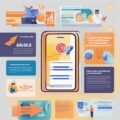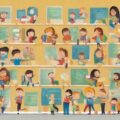Nourishing Your Knowledge: Discovering Top Nutrition Learning Resources
Embarking on a journey to understand nutrition is one of the most compassionate things you can do for yourself and those around you. In our fast-paced world, where conflicting information abounds, finding reliable nutrition learning resources can be a challenge. This article aims to guide you through some of the best nutrition education tools available, helping you cultivate a deeper understanding of how to nourish your body and mind.
The Foundation: Trusted Online Nutrition Courses
One of the most accessible ways to start your nutrition education is through online courses. These resources offer flexibility and often provide a structured approach to learning:
- Coursera’s “Stanford Introduction to Food and Health”: This course offers a compassionate approach to understanding the relationship between food and wellbeing, taught by Stanford University professors.
- edX’s “Nutrition and Health: Macronutrients and Overnutrition”: Wageningen University provides this comprehensive course, focusing on the basics of nutrition with a holistic view of health.
- Harvard’s “Nutrition and Health: Food Safety”: This course not only teaches about nutrition but also emphasizes the importance of food safety, a crucial aspect of overall health.
Empowering Books for Nutritional Wisdom
Books offer a deep dive into nutrition topics, allowing for reflection and personal growth:
- “How Not to Die” by Dr. Michael Greger: This book combines scientific research with practical advice, emphasizing the power of plant-based nutrition.
- “In Defense of Food” by Michael Pollan: Pollan’s work encourages a more mindful and intuitive approach to eating, focusing on whole foods and traditional diets.
- “The Blue Zones Solution” by Dan Buettner: This book explores the eating habits of the world’s longest-lived people, offering insights into sustainable, enjoyable nutrition practices.
Interactive Tools and Apps for Practical Learning
In our digital age, interactive tools can make learning about nutrition engaging and personalized:
- MyFitnessPal: While primarily known for calorie tracking, this app also offers educational content about macro and micronutrients.
- Fooducate: This app goes beyond calorie counting, providing information about the quality of ingredients and suggesting healthier alternatives.
- Nutrient Calculator by SELFNutritionData: This web-based tool allows users to analyze recipes and learn about the nutritional content of various foods.
Podcasts: Learning on the Go
For those who prefer audio learning or want to incorporate nutrition education into their daily routines, podcasts are an excellent resource:
- “The Nutrition Diva’s Quick and Dirty Tips for Eating Well and Feeling Fabulous”: Offers practical, science-based advice in bite-sized episodes.
- “Food Psych Podcasts”: Explores the intersection of nutrition, body image, and mental health, promoting a compassionate approach to eating.
- “The Doctor’s Farmacy” with Dr. Mark Hyman: Discusses various health topics, including nutrition, with a focus on functional medicine and holistic wellbeing.
Community and Support: Nutrition Forums and Groups
Learning about nutrition doesn’t have to be a solitary journey. Engaging with others can provide support, motivation, and diverse perspectives:
- Reddit’s r/nutrition: A community-driven forum where you can ask questions, share insights, and learn from others’ experiences.
- Local Nutrition Meetups: Many cities have nutrition-focused meetup groups where you can connect with like-minded individuals and learn together.
- Professional Associations’ Public Resources: Organizations like the Academy of Nutrition and Dietetics often provide reliable information and resources for the public.
Frequently Asked Questions
1. How do I know if a nutrition resource is reliable?
Look for resources backed by scientific research, written or created by qualified professionals such as registered dietitians or nutrition scientists. Be wary of sources that make extreme claims or promote quick fixes.
2. Can I learn enough about nutrition online to make informed decisions about my diet?
While online resources can provide a strong foundation, it’s always best to consult with a healthcare professional or registered dietitian for personalized advice, especially if you have specific health concerns or goals.
3. Are there any free nutrition courses available?
Yes, many platforms like Coursera, edX, and FutureLearn offer free nutrition courses. However, you may need to pay for a certificate if you want formal recognition of completion.
4. How often should I update my nutrition knowledge?
Nutrition science is continually evolving, so it’s a good idea to stay current by regularly engaging with trusted resources. Consider setting aside time each month to explore new research or listen to expert discussions.
5. Can learning about nutrition help with mental health as well as physical health?
Absolutely! Understanding the connection between nutrition and mental health is a growing field. Many resources now address the gut-brain connection and how dietary choices can impact mood, cognitive function, and overall mental wellbeing.
Remember, the journey to nutritional knowledge is a personal one. Be patient with yourself, approach learning with an open mind, and most importantly, use this knowledge to nurture a compassionate relationship with food and your body. Your increased understanding of nutrition can not only benefit your own health but also positively impact those around you, creating a ripple effect of wellbeing in your community.









